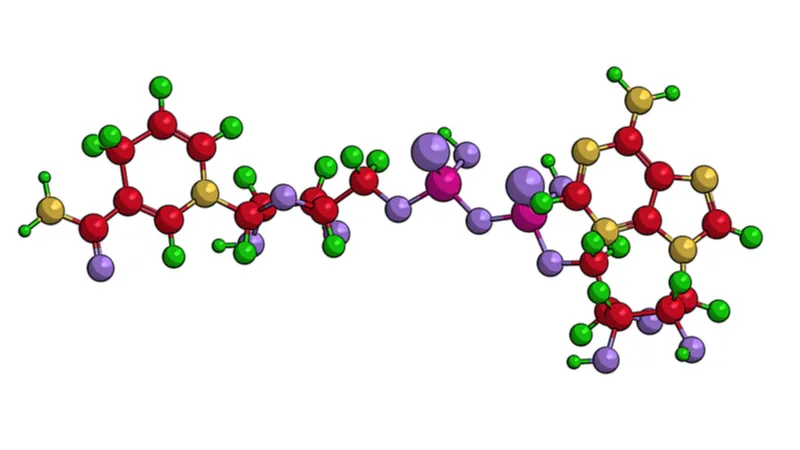What is apigenin?
Apigenin is a very common and widely distributed flavonoid in the plant kingdom. Flavonoids are a class of naturally occurring phytochemicals that are found in plant tissues. Plants use flavonoids to protect themselves from pathogens and radiation from the sun. Some of them even serve a role in attracting pollinating insects, such as bees, butterflies, and moths. Flavonoids are also used by plants to regulate their metabolism.
It is the aglycone of several naturally occurring glycosides, molecules that are connected to sugar molecules. It has been used in folk medicines for centuries as a way to treat anxiety and inflammation. Structurally, it is a solid crystalline with a yellow color, and it has been historically used to dye wool.
How much apigenin in chamomile tea?
Apigenin can be found in chamomile, which is normally drunk as a tea. It is obtained from the dried flowers of Matricaria chamomilla, an annual herb native to Western Asia and Europe. The plant has also been naturalized and grows wild in Australia and the United States.
The amount of apigenin in chamomile teas varies, with some containing significantly more chamomile than others. Teas prepared from chamomile generally have between 0.8% to 1.2% apigenin content.
What foods contain apigenin?
Apigenin can be found in many fruits, vegetables and herbs, including parsley, celery, celeriac, red and white sorghum, tarragon, yarrow, basil, rutabagas, oranges, kumquats, onions, wheat sprouts, thyme, spearmint, and cilantro.
While many foods contain apigenin, parsley is a great way to get high amounts of it. Dried parsley typically contains about 45 mg/gram, and dried chamomile flowers contain about 3-5 mg/gram of apigenin. The apigenin content of fresh parsley has been reported to be as high as 215.5 mg/100 grams. Green celery hearts can contain up to 19.1 mg/100 grams.
While studies are limited, and the wide range of foods containing apigenin make it hard to estimate an accurate dietary intake, it is likely somewhere in the region of 20-25 mg per day. Of course, this could be higher, especially among people whose diets are mostly or completely plant based.
Apigenin supplement
Of course, like most flavonoids, the supplement industry is more than ready to sell you apigenin as a dietary supplement. Typical doses start around 50mg, though higher doses are also offered.
Apigenin in the context of insomnia
Chamomile tea has traditionally been used for relieving insomnia for many years. Its usage was so commonplace that researchers have studied its active molecules, which include apigenin.
A small study saw 34 chronically insomniac adults between 18-65 years old given chamomile flower extract, with at least 2.5 mg of apigenin [1]. The participants had experienced the condition for six months or longer and had a total daily sleep time of 6.5 hours or less.
The researchers found that there were no significant differences between the treatment and control groups. These included differences in total sleep time, sleep efficiency, sleep latency, wake after sleep onset, sleep quality, and number of times that they awakened during sleep.
While it did not appear to have an impact on sleep quality itself, the researchers did observe a modest improvement in daytime functioning. They concluded that chamomile may be useful to improve daytime functioning for people suffering from insomnia.
Apigenin for anxiety and depression
Chamomile has also been traditionally used for treating anxiety and depression. A randomized, long-term clinical trial for the treatment of generalized anxiety disorder (GAD), was initiated in 2016. The trial saw the administration of 1500 mg (500 mg capsules three times daily) of chamomile extract to trial participants.
179 participants initially took part in an open-label phase, a phase of the trial in which information is not withheld from trial participants, allowing them to know what they are taking. In the second phase, 93 participants were randomized to either 26 weeks of continued chamomile treatment or given a placebo in a double-blind study.
Participants taking chamomile extract were shown to have significantly lower anxiety levels than participants in the placebo group. The chamomile group also showed a reduction of body weight and mean arterial blood pressure. Chamomile appeared to be safe and had a significant effect on GAD symptoms.
A 2012 study saw chamomile extract used for the treatment of GAD in a randomized, double-blind, placebo-controlled trial. Chamomile extract with a 1.2% apigenin content was administered to trial participants with anxiety; co-morbid depression, or anxiety with a history of depression; and anxiety with no current or past depression.
The 57 participants were given either chamomile extract or a placebo. The results showed a significant reduction in total Hamilton Depression Rating Scale scores with chamomile treatment. This suggests that chamomile extract may have an antidepressant effect.
This is good news, as research shows that depression can have a negative impact on the rate at which we age. In fact, according to the popular biological aging clock GrimAge, a clock that can accurately predict life expectancy, a person’s GrimAge is accelerated in major depression.
Anti-inflammatory properties of apigenin
Historically, chamomile tea has been used as a way to reduce inflammation, so it is no surprise that apigenin promotes multiple anti-inflammatory pathways, including p38/MAPK and PI3K/Akt, and that apigenin prevents IKB kinase degradation, which proceeds proinflammatory NF-κB activation and reduces COX-2 activity [4-6].
Apigenin has been shown to increase the expression of antioxidant enzymes, including GSH-synthase, catalase, and superoxide dismutase (SOD) to combat cellular oxidative and electrophilic stress. Our own white blood cells produce SOD and other reactive oxygen species to kill bacteria. Apigenin boosts the expression of phase II enzyme-encoding genes by blocking the NADPH oxidase complex and its downstream target inflammatory genes via increasing expression of nuclear translocation of Nrf-2 [7-9].
Apigenin and NAD+
In the context of aging and metabolism, apigenin and quercetin are both shown to inhibit the activity of CD38 [10-11]. CD38 is an enzyme that consumes nicotinamide adenine dinucleotide (NAD+) in ever-increasing amounts as we get older. NAD+ is a coenzyme found in all living cells and is essential for cellular function, DNA repair, and life.















































